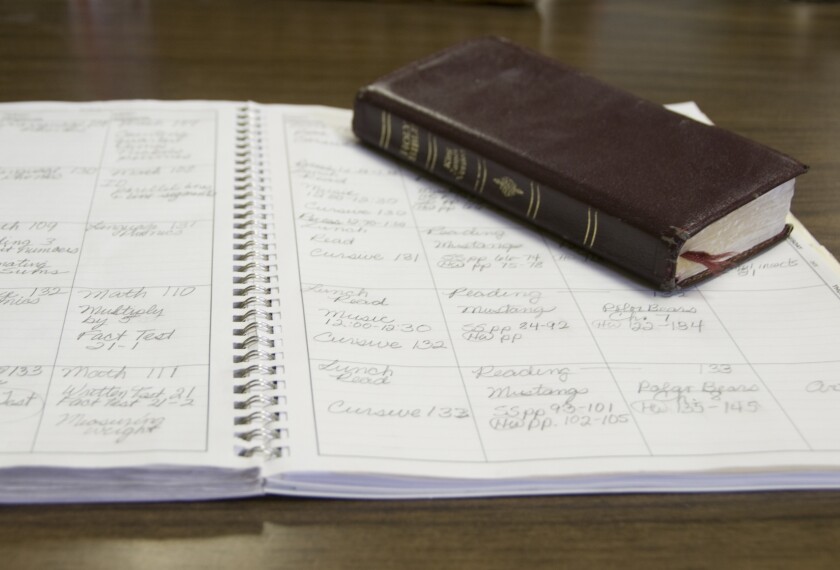Abstinence-based programs of sex education help make younger students more aware of the potential negative consequences of nonmarital sex but do not improve their self-esteem, refusal skills, or communication with their parents regarding sex, a federally financed study released last week suggests.
The study, conducted for the U.S. Department of Health and Human Services by researchers at Mathematica Policy Research Inc., in Princeton, N.J., and the University of Pennsylvania, scrutinized data on elementary and middle school students in four abstinence programs nationwide that receive federal funding, as well as on their peers who received a variety of other forms of sex education at school or from community-based providers.
The study did not examine the impact of the programs on the sexual behaviors of participants, who ranged from 3rd to 8th graders.
The authors found that students in abstinence-based programs had views more supportive of sexual abstinence and less supportive of teenage sex than those who were not enrolled in such programs. The report says there is also some evidence that the programs increased expectations among the students that they would abstain from sex and not date as much as their peers.
“First Year Impacts of Four Title V, Section 510 Abstinence Education Programs” is available from Mathematica Policy Research.
The Heritage Foundation posts its June 2005 report, “Adolescent Virginity Pledges, Condom Use, and Sexually Transmitted Diseases Among Young Adults.”
“Adolescent Virginity Pledges and Risky Sexual Behaviors” is posted by The Heritage Foundation.
But researchers acknowledged that the study’s scope was limited because of the young ages of the participants, who in one of the four programs examined were as young as age 10.
“At this stage, on this measure, it is difficult for us to assess whether the programs have had an effect on whether the [students] will abstain in the future,” said the project’s director, Christopher Trenholm of Mathematica. “What we don’t know is … if we change expectations, will we see changes in behavior?”
Sex education built around a strictly pro-abstinence message has come under increasing scrutiny, given the Bush administration’s high-profile support for such programs, despite questions from many researchers and educators about their effectiveness. President Bush is seeking $206 million for abstinence-based programs in fiscal 2006, a 23 percent increase over the current year.
Two other reports released last week by the Heritage Foundation, a Washington think tank, argue for the benefits of abstinence education. Reanalyzing data used in a previous study, they concluded that young people who pledged to keep their virginity were less likely to engage in risky sexual behavior and had lower rates of acquiring sexually transmitted diseases than their peers who did not make such pledges.
New View of Data
The Heritage reports seek to refute a study published in the April issue of the Journal of Adolescent Health. That study, from professors at Columbia and Yale universities, found that teenagers who pledged to abstain from sex before marriage still engaged in certain sexual behaviors, and as a result contracted venereal diseases at rates similar to those of nonpledgers. (“Study: Pledgers of Sex Abstinence Still at Risk of STDs,” March 30, 2005.)
While the Heritage studies used the same data from the federal National Longitudinal Study of Adolescent Health as the Columbia and Yale authors, they came up with different conclusions.
Robert Rector and Kirk A. Johnson of Heritage found that, on average, individuals who took virginity pledges as adolescents were 25 percent less likely to have sexually transmitted diseases as young adults than nonpledgers from similar socioeconomic backgrounds. Pledgers were also less likely to have sex in high school or have children out of wedlock.
It is common sense, Mr. Rector said, that because virginity pledgers are more likely to abstain from sex or have fewer sexual partners, they are less likely to contract STDs.
“Throughout our analysis, taking a virginity pledge was a more surefire way of reducing STDs than condom use,” he said.
Hannah Bruckner, an associate professor of sociology at Yale University and one of the two authors of the report in the Journal of Adolescent Health, said that the Heritage study has not yet been peer-reviewed and the researchers’ analyses would have difficulty satisfying the standards for publication in such a journal.




